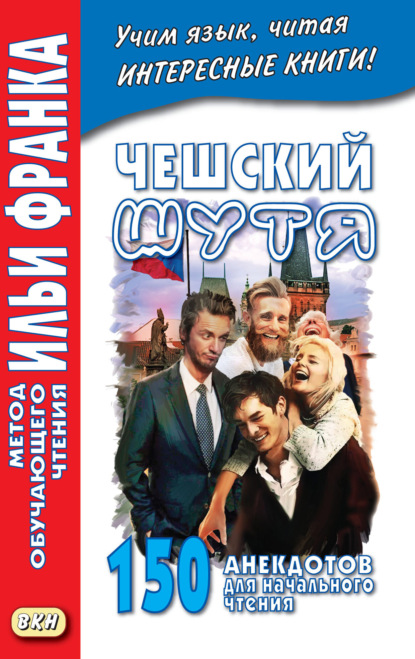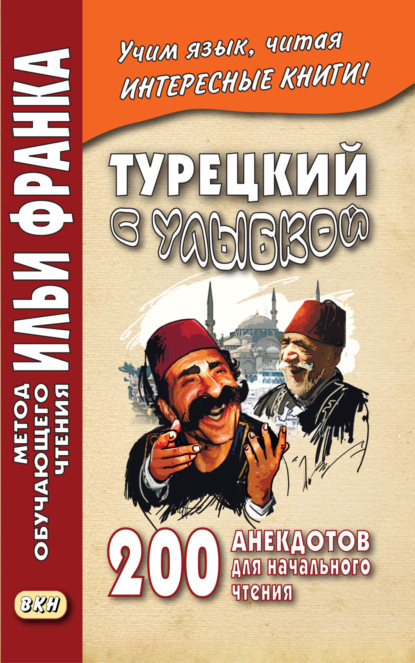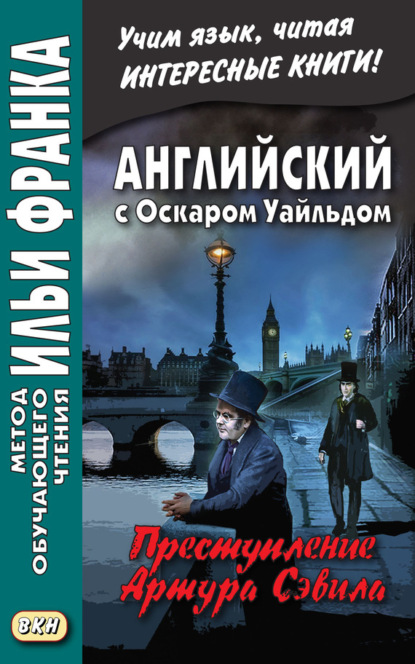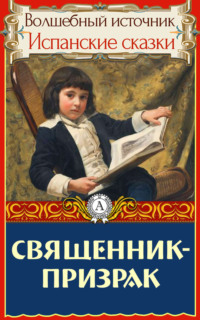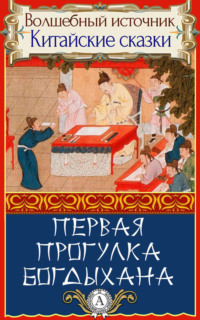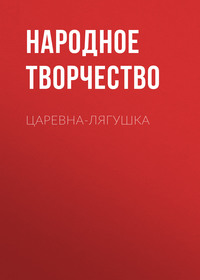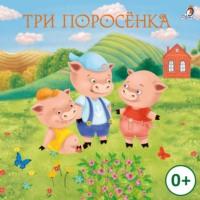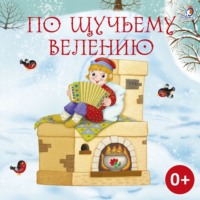
Полная версия
Легкое чтение на английском языке. Сказки Нового Света / Cyrus Mac Millan. Indian Wonder Tales
second ['sek(ǝ)nd], village ['vɪlɪʤ], wonderful ['wʌndǝf(ǝ)l]
When he awoke he found he had been asleep but a few seconds, but he was now in a large village in a beautiful land. It was a land of trees and flowers and wonderful streams, where many birds were singing. He came to a house on the border of the village and entered it. Inside was a very old woman; she was the only person in the house.
When she saw the boy (когда она увидела мальчика; to see – видеть), she began to cry (она начала плакать; to begin – начинать). He asked her why she was weeping (он спросил ее, почему она плачет). She answered (она ответила), “I know why you have come here (я знаю, зачем ты пришел сюда). I knew from a dream that you were coming (я узнала из сна, что ты придешь: «приходишь/прибываешь»). You have come to seek a very lovely girl as your wife and comrade (ты пришел, чтобы разыскать прекрасную девушку, которая стала бы тебе женой и другом; lovely – красивый, привлекательный; comrade – друг, приятель, товарищ). She lives in the village (она живет в этой деревне). Her father is very rich (ее отец очень богат). He is a great Chief (он – великий вождь).
dream [dri:m], lovely ['lʌvlɪ], chief [tʃi:f]
When she saw the boy, she began to cry. He asked her why she was weeping. She answered, “I know why you have come here. I knew from a dream that you were coming. You have come to seek a very lovely girl as your wife and comrade. She lives in the village. Her father is very rich. He is a great Chief.
He asks that each man who seeks to win his daughter (он требует, чтобы каждый, кто хочет завоевать сердце его дочери; to ask – просить, спрашивать; to seek – искать; добиваться, стремиться) must do very hard and dangerous and impossible tasks (выполнял очень трудные, опасные и невозможные задания; must – должен; danger – опасность). If they fail they are put to death (если им это не удается, их казнят: «предают смерти»; to fail – потерпеть неудачу, не исполнить). The girl has had many suitors (у девушки было много женихов; suitor – ухажер, почитатель, поклонник), but all have failed to do her father's tasks (но никому из них не удалось выполнить задания ее отца; to fail – потерпеть неудачу; не иметь успеха; не исполнить, не сделать) and all have been killed (и все были убиты). You too will fail and you will surely die (ты тоже потерпишь неудачу и без сомнения умрешь; surely – конечно, непременно).”
daughter ['dɔ:tǝ], dangerous ['deɪnʤ(ǝ)rǝs], impossible [ɪm'pɒsǝbl], task [tɑ:sk], suitor ['sju:tǝ]
He asks that each man who seeks to win his daughter must do very hard and dangerous and impossible tasks. If they fail they are put to death. The girl has had many suitors, but all have failed to do her father's tasks and all have been killed. You too will fail and you will surely die.”
Then the old woman cried louder than before (после чего старушка заплакала еще громче: «громче, чем раньше»). But the boy said (но мальчик сказал), “I can do any task he sets for me (я могу выполнить любую задачу, которую он передо мной поставит). He cannot kill me (он не сможет меня убить).” For the boy knew that the dancing fairy would save him (потому что мальчик знал, что пляшущий эльф спасет его; to know – знать).
woman ['wʋmǝn], louder ['laʋdǝ], knew [nju:; nu:], dancing ['dɑ:nsɪŋ]
Then the old woman cried louder than before. But the boy said, “I can do any task he sets for me. He cannot kill me.” For the boy knew that the dancing fairy would save him.
Soon the boy went to the Chief's house (вскоре мальчик пошел в дом вождя) to ask him for his lovely daughter (чтобы попросить руки его прекрасной дочери). The Chief told him the conditions on which she could be won (вождь сообщил ему условия, на которых он может ее завоевать: «она может быть добыта»; to tell – говорить; to win – побеждать, выигрывать; добиться, получить). He said that all her suitors had to try to do hard tasks (он сказал, что все ее ухажеры должны попытаться выполнить тяжелые задания). If they failed they were put to death (если они не справятся, их казнят); the suitor who succeeded should win his daughter (тот жених, которому это удастся, получит его дочь).
lovely ['lʌvlɪ] daughter ['dɔ:tǝ], condition [kǝn'dɪʃ(ǝ)n], won [wɒn], suitor ['sju:tǝ], succeed [sǝk'si:d]

Soon the boy went to the Chief's house to ask him for his lovely daughter. The Chief told him the conditions on which she could be won. He said that all her suitors had to try to do hard tasks. If they failed they were put to death; the suitor who succeeded should win his daughter.
The boy agreed to do as he wished (мальчик согласился сделать, как он хочет = выполнить его желание; to wish – желать, хотеть). The Chief said (вождь сказал), “The mountain before my house keeps me from seeing the sun in the mornings (эта гора перед моим домом загораживает мне солнце по утрам; to keep from doing smth. – удерживать от того, чтобы сделать что-либо). You must take it away (ты должен убрать ее) before you can win my daughter (прежде, чем сможешь получить мою дочь). If you fail you shall be put to death (если тебе это не удастся, тебя казнят).” The boy said he would take away the mountain that night (мальчик сказал, что он уберет гору этой ночью), but the Chief did not think he could do it (но вождь не думал, что он способен на это).
mountain ['maʋntɪn], before [bɪ'fɔ:], daughter ['dɔ:tǝ], death [deθ], night [naɪt]
The boy agreed to do as he wished. The Chief said, “The mountain before my house keeps me from seeing the sun in the mornings. You must take it away before you can win my daughter. If you fail you shall be put to death.” The boy said he would take away the mountain that night, but the Chief did not think he could do it.
That night when all the village was asleep (в ту ночь, когда вся деревня спала) the boy went to the foot of the mountain (мальчик пошел к подножию горы; foot – ступня, лапа; подножие, основание). It was a high granite hill (это был высокий гранитный холм), with great trees growing on its top (с огромными деревьями, растущими на вершине). The boy took out his box and opened it (мальчик достал свою коробочку и открыл ее). The little fairy was dancing as hard as he could (маленький эльф плясал изо всех сил: «так упорно, как мог»), but when he saw the light he stopped and said (но как только увидел свет, он остановился и сказал), “What do you want (что тебе угодно)?” And the boy said (и мальчик сказал), “I want you to take away this mountain before morning (я хочу, чтобы до утра ты убрал эту гору).”
asleep [ǝ'sli:p], granite ['ɡrænɪt], great [ɡreɪt], light [laɪt]
That night when all the village was asleep the boy went to the foot of the mountain. It was a high granite hill, with great trees growing on its top. The boy took out his box and opened it. The little fairy was dancing as hard as he could, but when he saw the light he stopped and said, “What do you want?” And the boy said, “I want you to take away this mountain before morning.”
“It shall be done (будет сделано),” said the little man (сказал человечек). Then the boy closed the box and lay down and went to sleep (затем мальчик закрыл коробку, лег и уснул; to go to sleep – засыпать). He slept soundly all night (он проспал крепко всю ночь; to sleep – спать; soundly – крепко, беспробудно; sound – здоровый, крепкий). When he awoke in the early morning the mountain was gone (когда он проснулся рано утром, гора исчезла; to awake – просыпаться; to be gone – исчезнуть: «быть ушедшим»). All around was only a level meadow (/вместо нее/ вокруг был лишь только ровный луг). The sun was still low in the eastern sky (солнце только всходило на востоке: «было еще низко в восточном небе»), but all the village could see it (но оно было видно всей деревне). When the Chief awoke (когда проснулся вождь), he wondered greatly (он очень удивился; greatly – очень, весьма, значительно, сильно, чрезвычайно). He thought he had lost his daughter at last (он подумал, что придется, наконец, расстаться с дочерью; to think – думать; to lose – не сохранять, терять /что-либо/, утрачивать). But he decided to set another hard task for the boy to do (но он решил поставить перед мальчиком другую задачу).
soundly ['saʋndlɪ], early ['ɜ:lɪ], meadow ['medǝʋ], wonder ['wʌnder], lost [lɒst], last [lɑ:st]
“It shall be done,” said the little man. Then the boy closed the box and lay down and went to sleep. He slept soundly all night. When he awoke in the early morning the mountain was gone. All around was only a level meadow. The sun was still low in the eastern sky, but all the village could see it. When the Chief awoke, he wondered greatly. He thought he had lost his daughter at last. But he decided to set another hard task for the boy to do.
Soon the boy went to the Chief to claim his bride (вскоре мальчик пошел к вождю, чтобы потребовать свою невесту). But the Chief said (но вождь сказал), “You must do another task for me (ты должен выполнить еще одно задание для меня). Not far away there is a village where my enemies live (недалеко есть деревня, в которой живут мои враги). They have caused me great trouble (они причиняют мне большое беспокойство; to cause – служить причиной; cause – причина). You must destroy the village (ты должен разрушить эту деревню) and drive all the people away (и выгнать всех людей; to drive – гнать) before you can win my daughter (прежде, чем сможешь получить мою дочь). If you fail to do it tonight (если тебе не удастся сделать это сегодня ночью), you shall be put to death tomorrow (завтра тебя казнят).” The boy agreed to do as he wished (мальчик согласился сделать так, как он хочет). And the Chief thought the boy would surely be killed in making the attempt (а вождь подумал, что мальчика непременно убьют, когда он попытается это сделать; to make an attempt – сделать попытку).
another [ǝ'nʌðǝ], trouble ['trʌbl], destroy [dɪs'trɒɪ], people ['pi:pl], attempt [ǝ'tempt]
Soon the boy went to the Chief to claim his bride. But the Chief said, “You must do another task for me. Not far away there is a village where my enemies live. They have caused me great trouble. You must destroy the village and drive all the people away before you can win my daughter. If you fail to do it tonight, you shall be put to death tomorrow.” The boy agreed to do as he wished. And the Chief thought the boy would surely be killed in making the attempt.
That night the boy set out for the distant village (в ту ночь мальчик отправился в дальнюю деревню). He ran very fast and soon reached the border of it (он бежал очень быстро и скоро добрался до ее окраины; to run – бежать; border – граница, край). Then he took out his box and opened it (потом он вынул свою коробочку и открыл ее; to take out – вынимать). The fairy stopped dancing and said (эльф перестал плясать и сказал), “What do you want (что тебе угодно)?” “I want you to destroy this village tonight (я хочу, чтобы сегодня ночью ты разрушил эту деревню: «хочу тебя разрушить эту деревню…») and drive all the people away (и прогнал всех людей),” said the boy (сказал мальчик). “It shall be done (будет сделано),” said the fairy (сказал эльф).
distant ['dɪst(ǝ)nt], village ['vɪlɪʤ], border ['bɔ:dǝ], tonight [tǝ'naɪt] done [dʌn]
That night the boy set out for the distant village. He ran very fast and soon reached the border of it. Then he took out his box and opened it. The fairy stopped dancing and said, “What do you want?” “I want you to destroy this village tonight and drive all the people away,” said the boy. “It shall be done,” said the fairy.
Then the boy closed the box and went to sleep under a tree (затем мальчик закрыл коробочку и заснул: «пошел спать» под деревом). He slept soundly all night (он крепко проспал всю ночь; to sleep – спать). In the morning when he awoke (утром, когда он проснулся), there was no village in sight (деревни как не бывало; in sight – в поле зрения; sight – зрение; поле зрения, видимость). All around him was silence (вокруг него везде была тишина); not a sound of life came to him but the sounds of the forest (ни одного звука жизни не долетало до него, кроме голосов леса; to come – приходить, доходить); the village had been destroyed in the night (деревня была ночью разрушена) and all its people were now far away (а все ее жители теперь были уже далеко).
silence ['saɪlǝns], forest ['fɒrɪst], sound [saʋnd], people ['pi:pl]
Then the boy closed the box and went to sleep under a tree. He slept soundly all night. In the morning when he awoke, there was no village in sight. All around him was silence; not a sound of life came to him but the sounds of the forest; the village had been destroyed in the night and all its people were now far away.
Then the boy went back and told the Chief that he had done the deed (тогда мальчик вернулся и рассказал вождю, что он выполнил задание: «сделал дело»). The Chief sent a messenger to see if the boy spoke the truth (вождь отправил гонца посмотреть, правду ли говорит мальчик; to send – посылать; messenger – вестник, глашатай, посыльный, курьер), and the messenger came back and said that the task had been done (и посланник вернулся и сказал, что задание было выполнено; to come back – возвращаться). Then the Chief knew that he was beaten (тогда вождь понял, что проиграл: «был бит»; to beat – бить; побеждать). He knew that the boy had very great power (он узнал = понял, что мальчик обладает огромной силой) which he could not understand (понять которую он не мог), and he said, “You may take my lovely daughter (ты можешь забрать мою прекрасную дочь).” So the boy took the girl as his wife and comrade (так девушка стала женой мальчика и его товарищем: «мальчик взял девушку в жены и товарищи»). The Chief gave them a great lodge to live in and servants to wait on them (вождь отдал им большой вигвам, чтобы было где жить, и слуг, чтобы прислуживали им; lodge – домик; вигвам), and they were very happy (и они были очень счастливы).
messenger ['mesɪnʤǝ], truth [tru:θ], lovely ['lʌvlɪ], daughter ['dɔ:tǝ]
Then the boy went back and told the Chief that he had done the deed. The Chief sent a messenger to see if the boy spoke the truth, and the messenger came back and said that the task had been done. Then the Chief knew that he was beaten. He knew that the boy had very great power which he could not understand, and he said, “You may take my lovely daughter.” So the boy took the girl as his wife and comrade. The Chief gave them a great lodge to live in and servants to wait on them, and they were very happy.
But their happiness was soon ended for a time (но скоро счастье им изменило: «закончилось на /продолжительное/ время»). One day the boy went away with many others to hunt far in the forest (однажды мальчик отправился вместе с другими охотиться далеко в лес). He put on a hunting suit (он надел охотничий костюм), but he forgot to take his magic box along with him (но забыл взять с собой свою волшебную коробочку; to forget – забывать). He left it behind in the pocket of his coat (он забыл ее в кармане куртки; to leave behind – забывать /что-либо где-либо/: «оставлять позади/за собой»). In the house was a wicked servant (один из слуг в доме был вороватым; wicked – злой, безнравственный, нечестный) who wanted the boy's possessions for himself (и был не прочь прихватить кое-что из вещей мальчика себе: «который хотел имущество мальчика для себя»; possession – имущество, собственность; to possess – владеть, иметь, обладать).
suit [sju:t], magic ['mæʤɪk], behind [bɪ'haɪnd], wicked ['wɪkɪd], possessions [pǝ'zeʃ(ǝ)nz]
But their happiness was soon ended for a time. One day the boy went away with many others to hunt far in the forest. He put on a hunting suit, but he forgot to take his magic box along with him. He left it behind in the pocket of his coat. In the house was a wicked servant who wanted the boy's possessions for himself.
One day he had seen his master opening the box and talking to it (однажды он видел, как его хозяин открывал коробку и что-то говорил с ней). He wondered what his master meant and what was in the box (ему стало интересно, зачем он это делал и что было в коробке; to mean – намереваться, иметь в виду). When his master had gone hunting (когда хозяин уехал на охоту), the servant went to hang up his clothes (слуга пошел развесить его одежду). He found the box in the coat pocket (в кармане куртки он обнаружил коробку; to find – находить). He took it out and opened it (он вынул ее и открыл). Inside, the little man was dancing as hard as he could (внутри изо всех сил отплясывал маленький человечек; as hard as he could – так рьяно, как он мог).
master ['mɑ:stǝ], servant ['sɜ:v(ǝ)nt], clothes [klǝʋðz], inside [ɪn'saɪd]
One day he had seen his master opening the box and talking to it. He wondered what his master meant and what was in the box. When his master had gone hunting, the servant went to hang up his clothes. He found the box in the coat pocket. He took it out and opened it. Inside, the little man was dancing as hard as he could.
When he saw the light, he stopped and said (когда он увидел свет, он остановился и сказал), “What do you want (что тебе угодно)?” The servant knew that at last he had found the secret of his master's power (слуга понял, что наконец-то он нашел секрет /магической/ силы своего хозяина). “What do you want me to do (что ты хочешь, чтобы я сделал: «что ты хочешь меня сделать»)?” repeated the little man (повторил человечек). The man-servant said (слуга сказал), “I want you at once to remove this house and all it contains to some place far away (я хочу, чтобы ты тут же перенес этот дом и все его содержимое подальше отсюда: «в какое-нибудь далекое место»; to remove – передвигать, перемещать).” Then he closed the box (затем он закрыл коробку). At once there was darkness (сразу стало темно), and when light came again in a few seconds (а когда через несколько секунд опять стало светло: «свет пришел вновь = вернулся»), the house and all in it were far away in the depths of the forest
Конец ознакомительного фрагмента.
Текст предоставлен ООО «ЛитРес».
Прочитайте эту книгу целиком, купив полную легальную версию на ЛитРес.
Безопасно оплатить книгу можно банковской картой Visa, MasterCard, Maestro, со счета мобильного телефона, с платежного терминала, в салоне МТС или Связной, через PayPal, WebMoney, Яндекс.Деньги, QIWI Кошелек, бонусными картами или другим удобным Вам способом.


